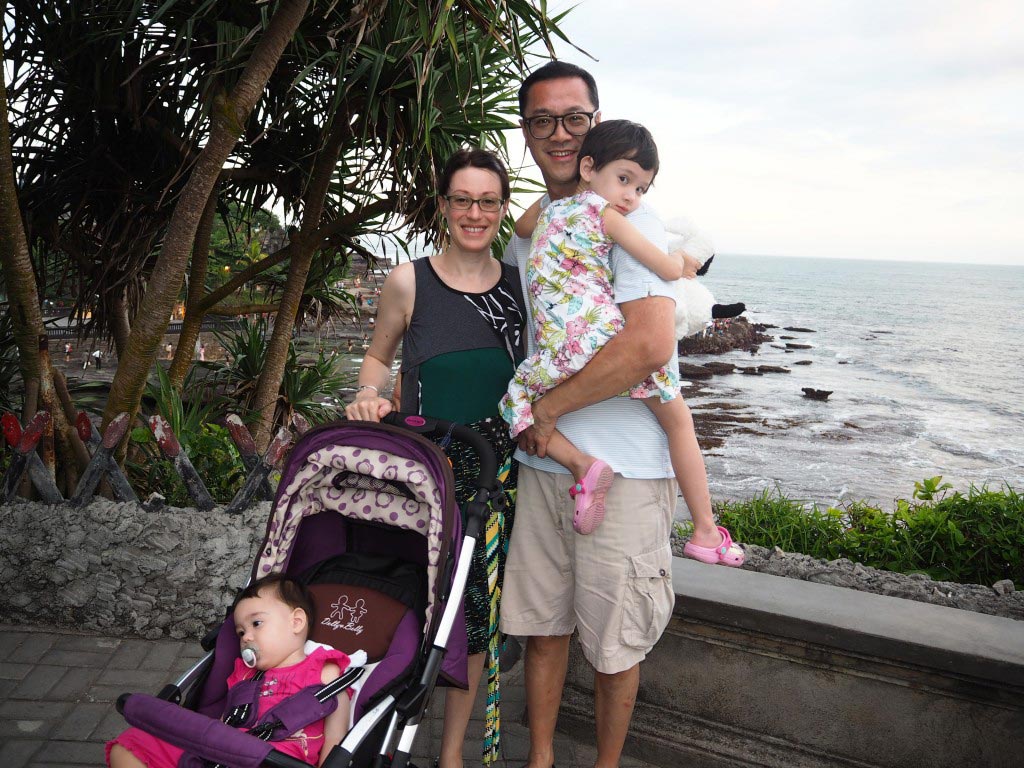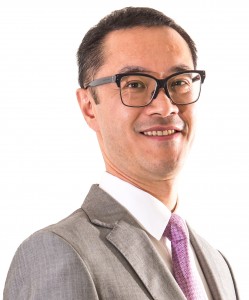Specialist Dental Group has launched an on-going series of blog posts by our individual dental specialists. All views provided are the dentist’s own opinions and are posted on this blog as part of our on-going efforts to educate the public about dental issues and other matters of interest.

I would like to share a few thoughts and experiences about the meaning of identity, specifically racial identity, from before and since our move to Singapore.
I was born and raised in the UK and spent the last 20 years of my life in London. Both cities are great examples of multi-culturalism, with people of different races/religions co-existing largely harmoniously side by side.
I am ethnically Chinese; my mother was born in China, while my father was born in the UK and served in the British Army. My grandfather was born in China but moved to the UK as a young child. We can trace our family roots back to 1898, in the UK.
I speak just passable Cantonese, but if you hear me speak English without seeing my face, you would say I was a true Brit. Unfortunately, I have experienced racial discrimination in various subtle and not-so-subtle ways over the years. Being a minority at all the schools I attended, I was often singled out such that I never felt that I truly belonged.
Our family unit was very Asian. Having my grandparents living in with us, in a house of eight, my domestic influences were quite traditional. In fact, I rarely ate Western food until a relatively late age. On the occasion we did, I found it to my liking and wished we had more.
I would always remember an incident when I was coughing and my mother liberally spread Tiger Balm on my chest before I headed to school. As you know, the smell can be considered very pungent for some. This caused me great embarrassment as no one would sit beside me in class. Remember, this was in the 1970’s when there was very little knowledge of the Chinese culture in the UK except for a few Kung Fu movies and fried rice and prawn crackers at the local Chinese restaurant.
My wife is from London. She has a Jewish Mother and Irish Father. As Judaism follows the maternal line, that makes my wife a Jewish (although non-practicing) and, therefore, my two daughters Jewish. In the UK, where my first daughter was born, she is identified as mixed-race (White/Chinese). The description “White” has additional descriptors to help distinguish between the different ethnic groups who might call themselves ‘White” (the term Caucasian has not been used for some time now). As for my second daughter who was born in Singapore, there is no option for mixed race on the birth certificate. The closest option available is Eurasian and I am not sure if this is an adequate description.
However, now that I am applying for her to be a Singapore Permanent Resident, there is no option for Eurasians and the race for our daughter automatically defaults to mine, which is Chinese. In addition, for consistency in the application, our first daughter must be stated as a Chinese too. As you can see, this is not accurate either.
Our second daughter did not automatically become a Singaporean citizen by birth place and she got her British passport soon after she was born. She may have the distinction of being a British citizen who may never live in the UK. However, for all intents and purposes she would be raised and schooled in the Singaporean way (we would like our children to attend local schools) and would therefore be more Singaporean than British.
Both in the UK and Singapore, there are fears that the home culture is being “diluted”, causing traditional values and ways to disappear. I think this is too simplistic a view which is borne out of the fact that each generation has more complicated parentage which is affected by immigration. As long as there is an interest in the culture of origin by all groups, that would keep traditions alive. In any case, diversity should be embraced and the more we learn about each other, the more we realize we have more in common than differences.
There is also the question of how you see yourself and if you have mixed heritage, which culture do you identify most strongly with? I believe that language is a key to identity and a sense of belonging. I understand from my Singaporean friends that although Chinese is taught at schools, their children mostly speak English at home. This might be because English is the common language for everyone, including child minders and domestic helpers. Moreover, popular culture in the form of films and music is dominated by America and Britain.
I am encouraged by the late Mr Lee Kuan Yew who practiced Mandarin right up until the end of his life: –
“I have spent a whole lifetime catching up with my Chinese, but it is important that we know ourselves and that we understand bilingual language and the spoken language.” Lee Kuan Yew (2011)
It is with the above thoughts in mind that we have signed up for Mandarin lessons.
In my relatively short time here, I have met a racially diverse group of people, possibly even more so than in London. What we have in common is that we are all here for a reason and Singapore in its Golden Jubilee year, is a place we want to be rather than have to be. Which culture will my children identify most with and what would they write on their application forms in the future? I can’t answer that, but we would do our best as parents to give them an appreciation of not only their cultures but all cultures.
Dr Steven Soo is a Dental Specialist in Prosthodontics at Specialist Dental Group. He was formerly a Clinical Lecturer at the Eastman Dental Institute and Clinical Teacher at the GKT Dental Institute, both of which are affiliated with the University of London. Dr Soo has a special interest in prosthetic and implant restorative dentistry.






